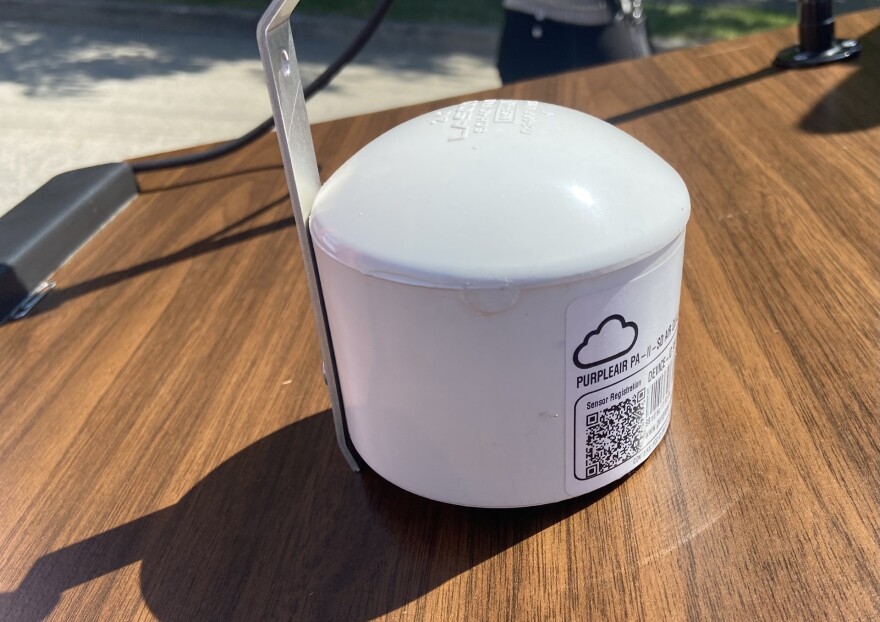- Officials from Lehigh and Northampton counties on Thursday released the first update on Lehigh Valley Breathes
- The air quality monitoring project is expected to run for one year
- So far, 10 of 40 PurpleAir monitors have been placed
BETHLEHEM, Pa. — Ten air quality monitors have been so far installed throughout the Lehigh Valley as part of a $100,000 monitoring project.
“Why, you may ask, only 10? Because monitor siting is both an art and a science,” according to a Thursday news release from Lehigh and Northampton counties. “ … We expect to have several more installed this week, and we’re still on track to have them all up this fall.”
Launched in August, Lehigh Valley Breathes is a new, Valley-wide effort to monitor air quality amid emissions from trucking and warehousing, a major part of the region’s economy. As part of the effort, 40 PurpleAir monitors are slated to be installed. During an Aug. 2 news conference announcing the effort, officials said poor air quality is driving residents away, and the monitoring project will give leaders data to improve the air and combat further issues.
Officials said last week that residents would receive monthly updates on the year-long project, the first of which was released Thursday.
“We had over 90 emails in response to our invitation, and from that, we’ve identified at least 70 possible locations. Since we only have 40 monitors to deploy for the project, we won’t need all those sites; however, seeing so many people eager to participate was great.”Lehigh Valley Breathes officials
“We had over 90 emails in response to our invitation, and from that, we’ve identified at least 70 possible locations,” according to the release. “Since we only have 40 monitors to deploy for the project, we won’t need all those sites; however, seeing so many people eager to participate was great.”
Officials “need to carefully balance priority sites with secondary sites” and even then, “the site itself needs a bit of tweaking,” according to the release.
“Two of the monitors we had already installed needed to be relocated at the site they’re in because they were picking up stray readings from non-mobile or non-standard sources,” according to the release. “One at a fire company picked up readings from the fire trucks when they left the garage. Another monitor was picking up readings from smoke from a nearby fireplace.
“They just needed to be repositioned, but that takes time.”
So far, there are no observations researchers can pull from the data collected, officials said, but as more monitors are installed, creating more data, “it will become easier to identify patterns and outliers.”


